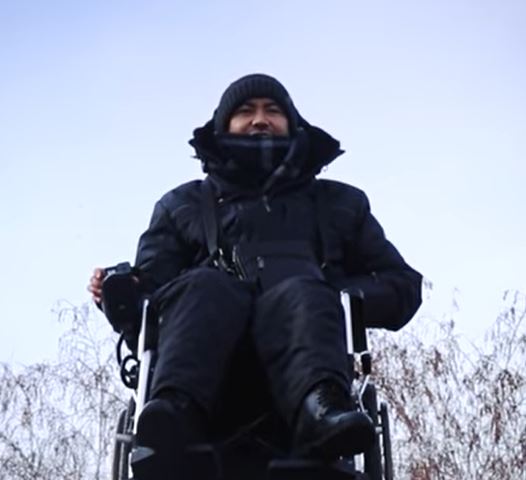It was a cold January day in 2009. After a long bus trip from Nur-Sultan, Zhaslan Suleymenov was relieved to finally arrive in Russia. He was there to visit a medical facility for a specialist treatment. Many years before, he had fallen at work and sustained a spinal injury, needing a wheelchair. That night, he was sleeping on the floor awaiting his treatment, when a group of officers suddenly woke him up. They forced him to come to the station, without any explanation.
Zhaslan was questioned throughout the night, and police started to ask him about terrorist motives. He was put up in a hotel while officers back home were searching his house. They claimed to have found a flash drive there, containing footage of terrorist acts. Zhaslan had never seen this drive before. It turned out it had been uploaded while Zhaslan was detained; he couldn’t have done it himself. Despite this false evidence, the court sent him to prison for eight years.
The nightmare continued
In prison, he was given no assistance or facilities for being a person using a wheelchair. He was deprived of his basic needs, left alone in his cell and suffered incessant bedsores. As if these rights’ violations weren’t bad enough, prison officials continually beat and tortured him. Zhaslan somehow managed to get legal help from human rights lawyers. His only aim at that point was to try and improve his conditions while incarcerated.
After eight years, Zhaslan was released. Together with his lawyer Anara Ibraeva, whom he had already contacted in prison, he submitted a complaint to the UN Human Rights Committee. After many years, they won the case and Zhaslan was finally awarded compensation for his horrific ordeal.
A positive difference
Following the verdict, Zhaslan applied to a journalism course, and bought equipment to film and record everyday situations in his city, Nur-Sultan. His experience in jail traumatised him, but also motivated him to make a positive difference for people in his hometown. To this day, Zhaslan is very active on social media and publishes vlogs regularly, helping to make Nur-Sultan more wheelchair-friendly. He feels very strongly about this: having a disability should not mean you cannot live a normal life.
**
This story was first published by the Netherlands Helsinki Committee, who supports Dignity’s #BringHumanRightsHome initiative.



